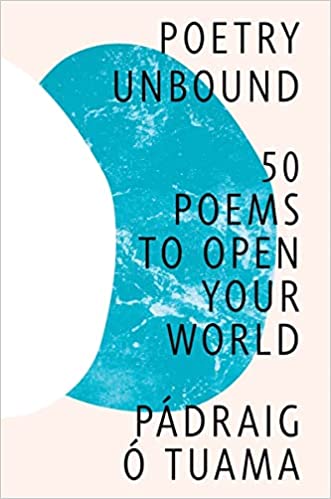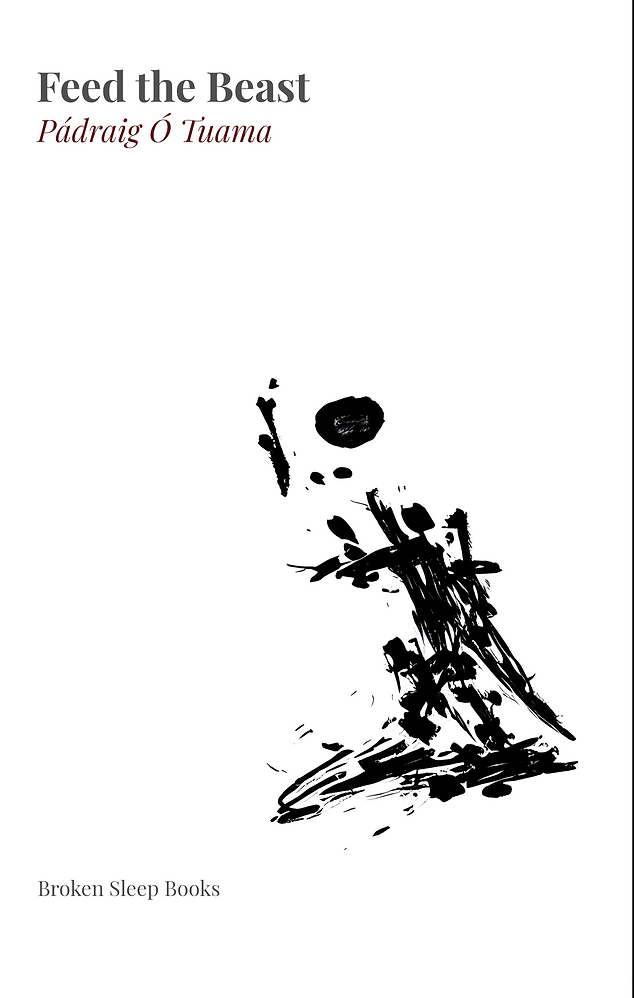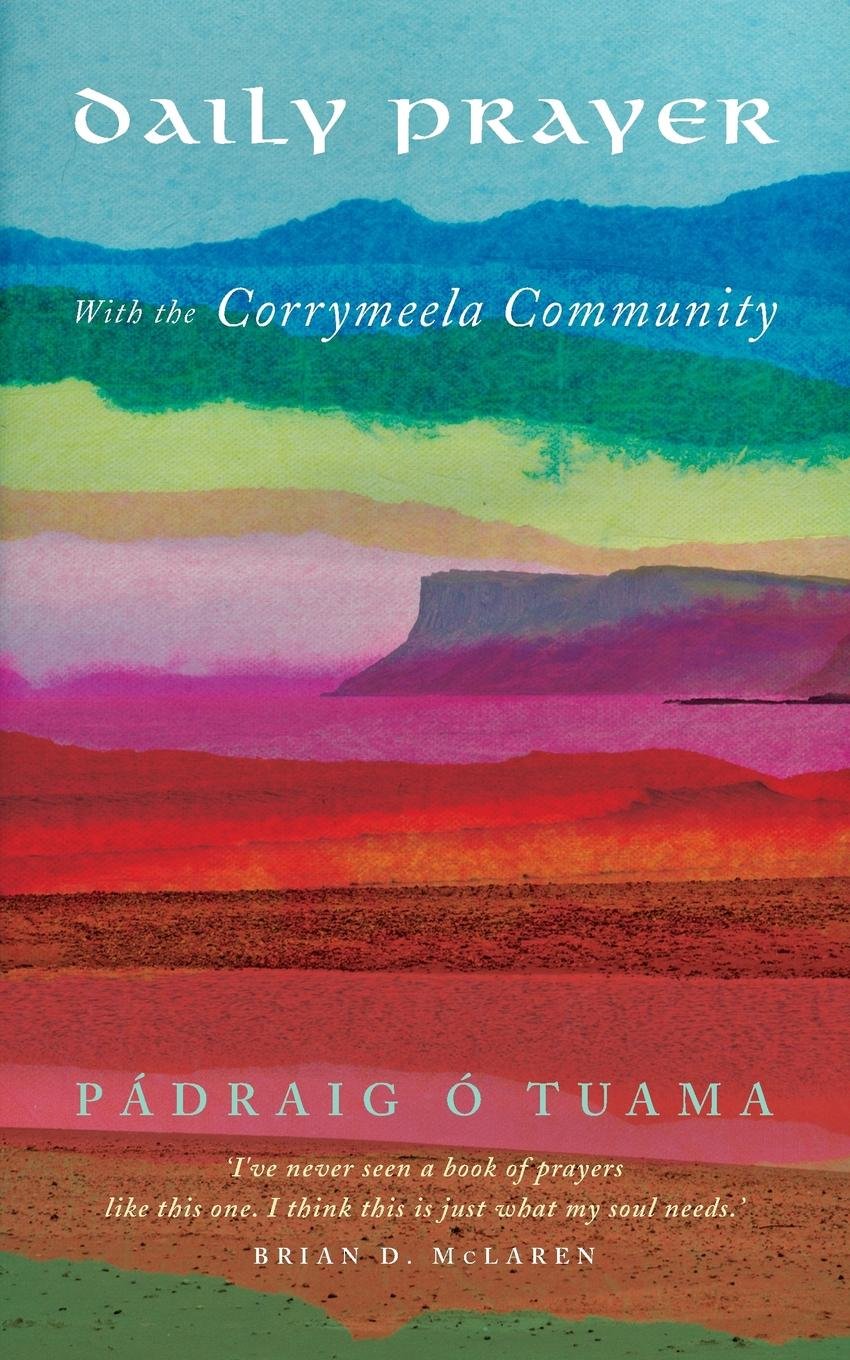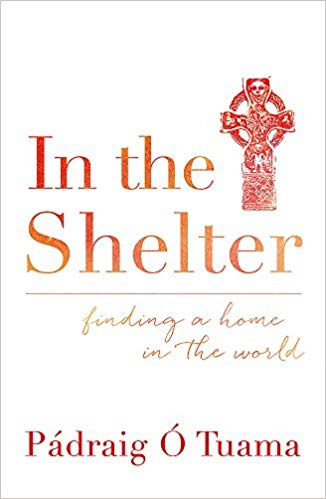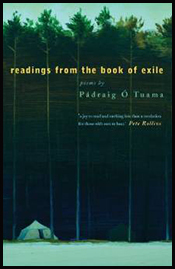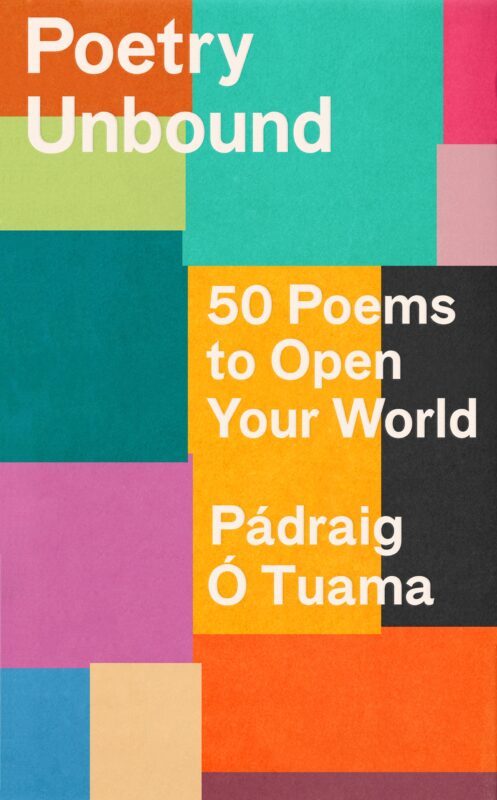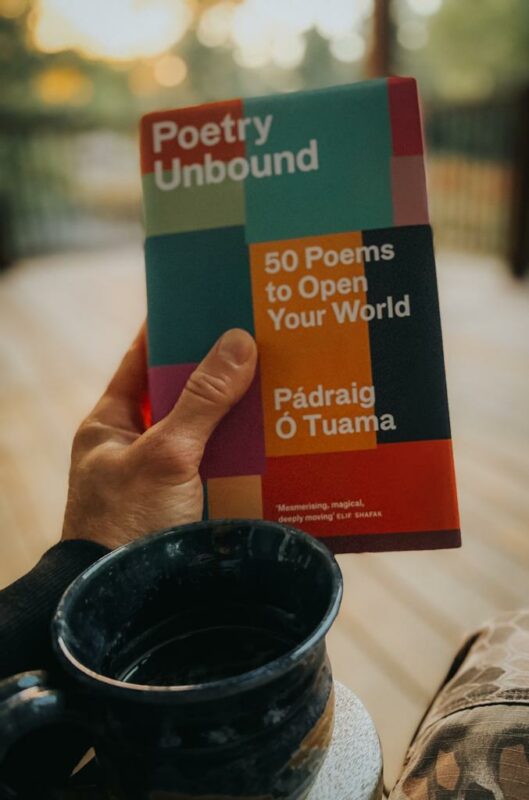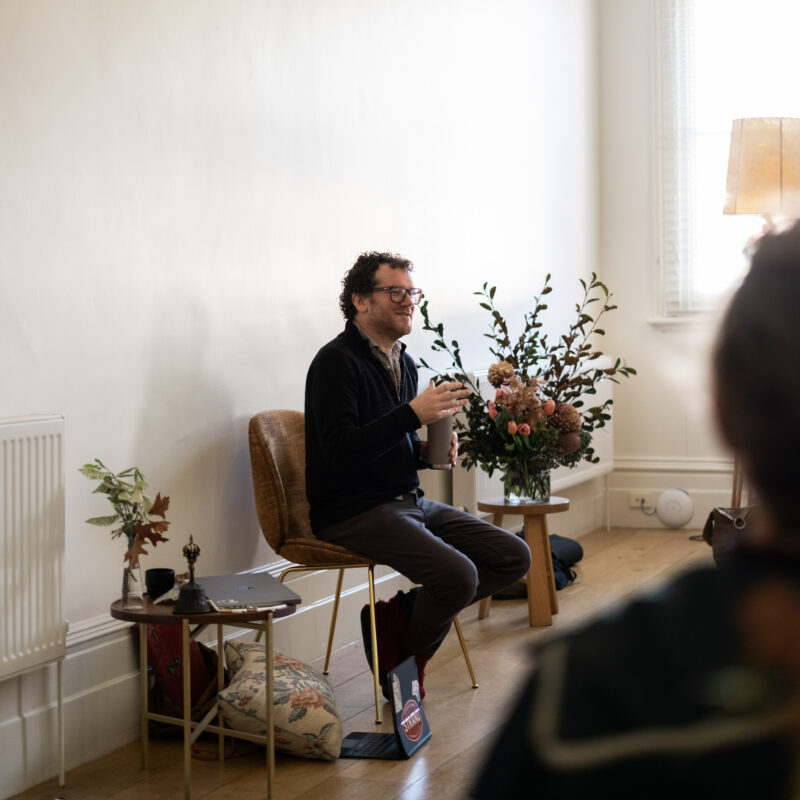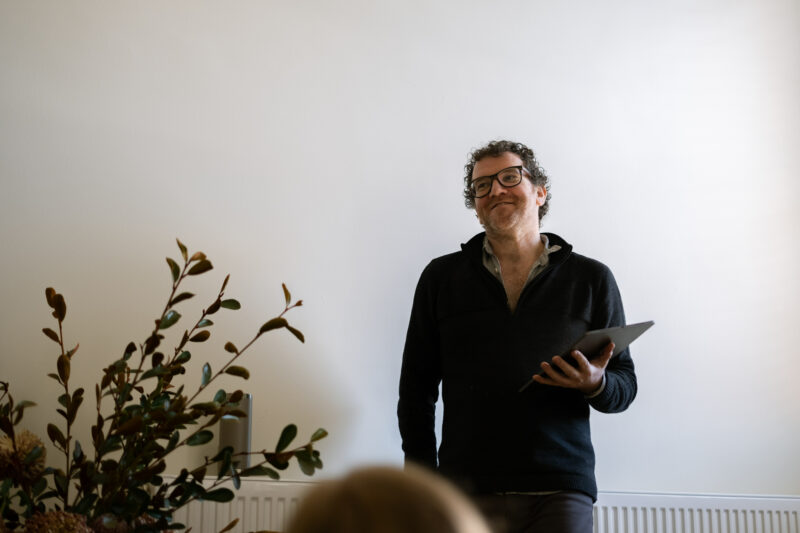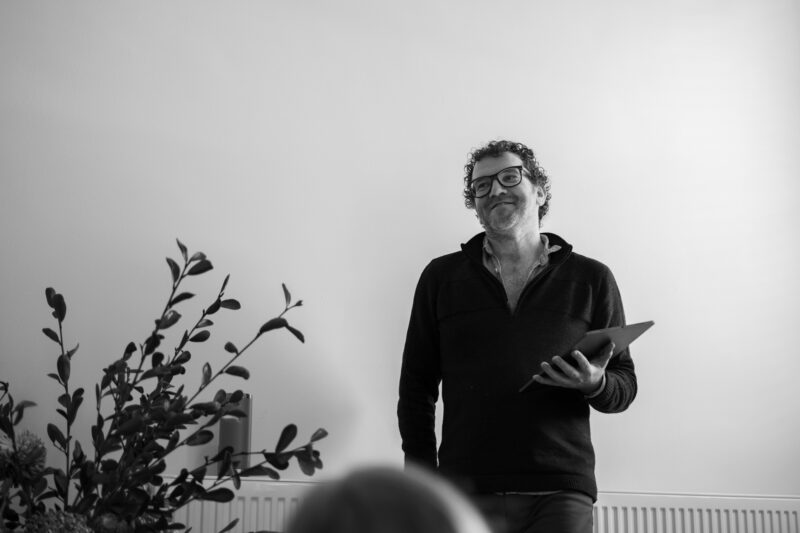

Pádraig Ó Tuama
Distinguished Irish Poet
Theologian and Mediator
Podcast Host: Poetry Unbound
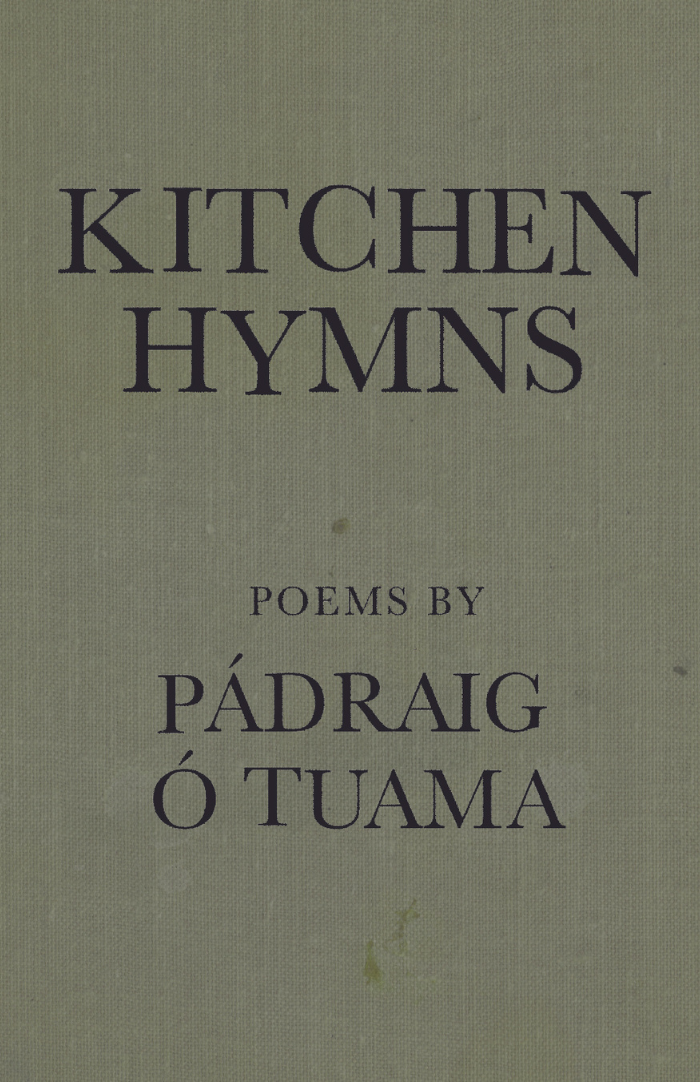
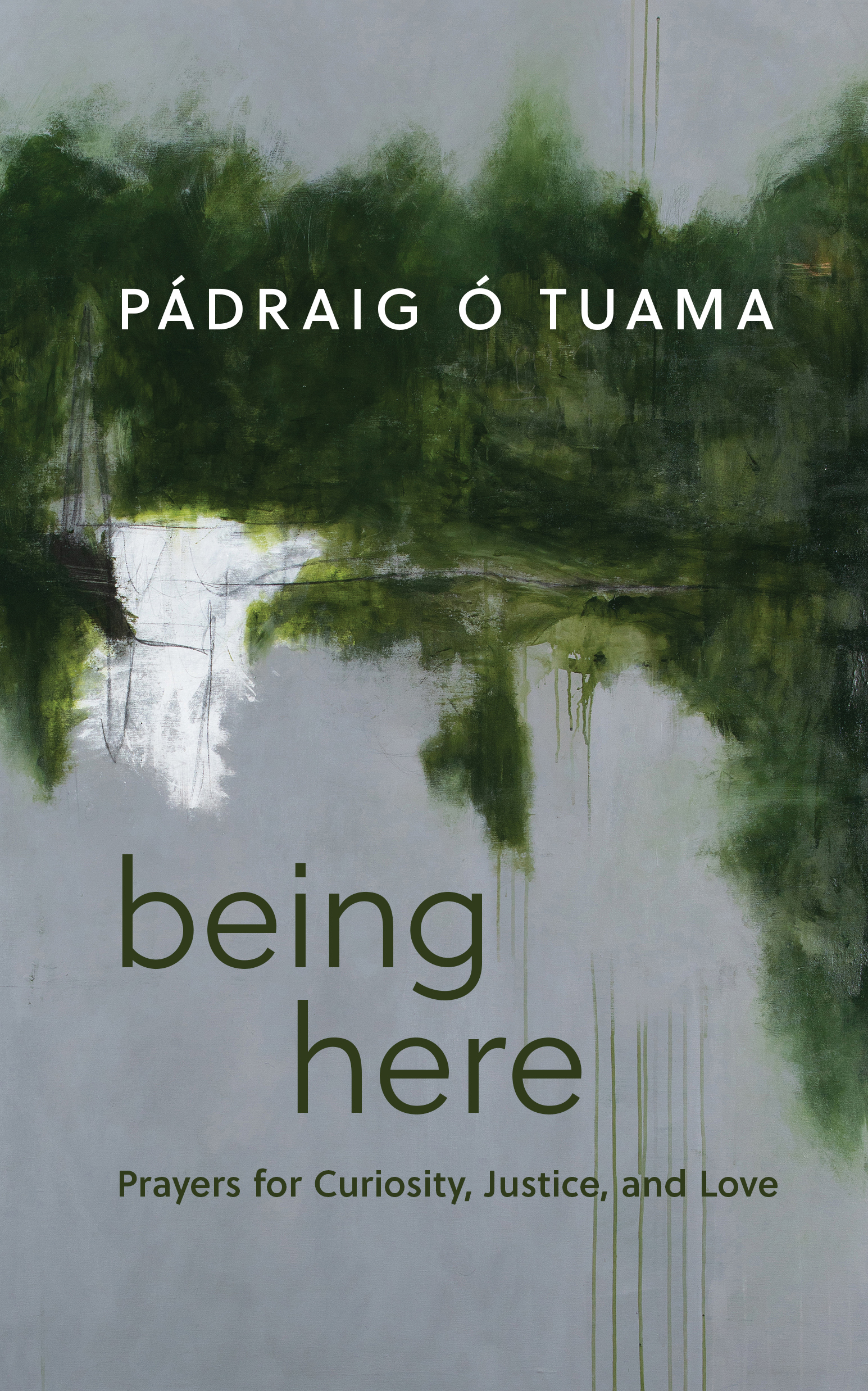
Readings &
Lecture Topics
- The Poetry of War and Peace
-
Poetry and Conflict Resolution
- The Borders of Belonging
- Emily Dickinson and Time: the Past, Present, and Future Collide
-
Exorcisms, Demonisation and Reparative Therapy
-
In Praise of the Secular
-
Poetry and Form: From the Sonnet to Free Verse
-
An Evening with Pádraig Ó Tuama
Biography
“Pádraig Ó Tuama is an extraordinary person, whose influence extends quietly and gracefully across the world. His poetry bears these same qualities and brings him close. It is a gift to us all.” —Krista Tippett, Creator of On Being
“Ó Tuama has become a shepherd in the shambolic tradition of contemporary spirituality, treating poetry as a form of agnostic prayer. Poetry, for him, is the language the heart speaks not when it reaches for some externalized divinity but when it seeks to understand itself.” —The New Yorker
“Putting to work poetry and gospel, side by side with story and Celtic spirituality, Ó Tuama explores ideas of shelter along life’s journey, opening up gentle ways of living well in a troubled world. The reader can’t help but be drawn in, slip-sliding into the harbor of the author’s soulful words.” —Chicago Tribune
Pádraig Ó Tuama is a poet, theologian, conflict resolution mediator, and the author of Kitchen Hymns (2025), Being Here: Prayers for Curiosity, Justice, and Love (2024), Poetry Unbound (2022), Feed the Beast (2022), Daily Prayer with the Corrymeela Community (2017), In the Shelter (2015), Sorry for your Troubles (2013), and Readings from the Books of Exile (2012), which was longlisted for the 2013 Polari First Book Prize.
About his most recent collection of poems, Feed the Beast, Jericho Brown says, “This book is unashamed about poetry’s relationship to the spirit. I would go as far as saying this book is one way we know poetry is prayer.” His memoir, In the Shelter, interweaves everyday stories with narrative theology, gospel reflections with mindfulness, and Celtic spirituality with poetry for a memoir that relates ideas of shelter and welcome to journeys of life.
Reginald Dwayne Betts observes how Ó Tuama’s project Poetry Unbound, “is fifty poems and 300 pages of commentary revealing and confessing why a line of verse might make you weep. But more than that, it is a collection of moments and meditations and a turning toward the ways that some memories, of sorrow and joy, might make us hold on a little while longer, long enough in fact.” The book expands on the popular podcast of the same name from On Being and offers immersive reflections on fifty powerful poems. Ó Tuama began the podcast in January, 2020, hoping, at the time, that it would garner as many as thirty thousand downloads. Now that number has surpassed ten million, and Poetry Unbound has become one of the most popular poetry programs in recent history.
His poetry collection Daily Prayer with the Corrymeela Community draws on the spiritual practices of Ireland’s oldest peace and reconciliation community Corrymela—of which Ó Tuama was a leader from 2014-2019. Described by Canterbury’s Poetry Laureate Patience Agbabi as “compassionate, contemporary and formally innovative,” this prayer book was structured over 31 days, offering a daily Bible reading with accompanying prayer. Network Magazine praised it as being remindful of Augustine’s Confessions and Newman’s Apologia: “It comes from the heart, it recognizes the hurts and the triumphs, and it encourages us to say ‘hello’ to new things.”
For Ó Tuama, religion, conflict, power and poetry all circle around language, that original sacrament. Working fluently on the page and in public, Ó Tuama is a compelling poet, teacher, and group worker, and a profoundly engaging public speaker. He has worked with groups to explore story, conflict, their relationship with religion and argument, and violence. Using poetry, group discussion, and lectures, his work is marked both by lyricism and pragmatism, and includes a practice of evoking stories and participation from attendees at his always-popular lectures, retreats, and events.
His poems have been published at Poetry Ireland Review, Academy of American Poets, Post Road, cream city review, Holden Village Voice, Proximity Magazine, On Being, Gutter, America, and Seminary Ridge Review.
Pádraig Ó Tuama holds a BA Div validated by the Pontifical College of Maynooth, an MTh from Queen’s University Belfast and recently received a PhD in Theology through Creative Practice at the University of Glasgow exploring poetry, Irishness and religion.
He splits his time between Belfast, Ireland and New York City.
Short Bio
Irish poet and theologian Pádraig Ó Tuama’s work centers around themes of language, power, conflict and religion. He is the author of several books of poetry and prose: Kitchen Hymns, Being Here: Prayers for Curiosity, Justice, and Love, Feed the Beast, Daily Prayer with the Corrymeela Community, In the Shelter, Sorry for your Troubles, and Readings from the Books of Exile. Ó Tuama is also the host of the popular podcast Poetry Unbound, which immerses the listener into one poem every week, and the author of the collection, Poetry Unbound, an expansion on the podcast that offers reflections on fifty powerful poems. He splits his time between Ireland and NYC.
Visit Author WebsiteVideos
Publications
Kitchen Hymns
Poetry, 2025
Pádraig Ó Tuama’s Kitchen Hymns opens with a question: “Do You Believe in God?” — but the bee, “gone extinct,” cannot answer, and the grass calls believe “a poor verb.” This collection trades belief for language, and philosophy is grounded in form and narrative. Kitchen Hymns is structured like a ghost mass, where even if God is a “favorite emptiness,” longing still has things to say: Jesus and Persephone meet at Hell’s exit and discuss survival; someone believes more in birds than belief; hares carry messages from the overworld to the underworld. A study in lyric address, Kitchen Hymns speaks to a shifting “you”: an unknown you; the strange you; a lover, a hated other; the you of erotic desire; the you of creation and destruction. Large themes are informed by and contained in a poetics of observation, humor, trauma, dialogics, lament, rage and praise. Delivered in finely honed melodies, shaped with force and conviction, Kitchen Hymns “reckon[s] with the empty,” and becomes “busy with a body / not a question.”
Prayers for Curiosity, Justice, and Love
Essay, 2024
In Being Here, acclaimed poet and theologian Pádraig Ó Tuama offers a thoughtful collection of prayers and essays to focus attention in a world full of distractions. Featuring 31 collects—an ancient five-fold form of prayer—this unconventional devotional invites readers into a daily rhythm of connection and creativity. “The hope is that you can turn to a prayer with the story of your life, and in the little emptiness you create there, hear something, discern something, feel something that’s connecting you to other things seeking out connection with you.” Each day’s prayers are presented alongside scripture and illuminating literary texts. The book concludes with four incisive essays on politics, community, and the contours of contemporary life as seen through biblical literature. Pádraig also teaches readers how they can embrace poetic form to expand their practice of prayer. In these pages, spiritual wayfarers will find a place to both rest and grow their capacity for curiosity, justice, and love.
Poetry Unbound
Anthology, 2022
Expanding on the popular podcast from On Being, Poetry Unbound offers immersive reflections on fifty powerful poems.
In the tumult of our contemporary moment, poetry has emerged as an inviting, consoling outlet with a unique power to move and connect us, to inspire fury, tears, joy, laughter, and surprise. This generous anthology pairs fifty illuminating poems with poet and podcast host Pádraig Ó Tuama’s appealing, unhurried reflections. With keen insight and warm personal anecdotes, Ó Tuama considers each poem’s artistry and explores how its meaning can expand into our own lives.
Focusing mainly on poets writing today, Ó Tuama engages with a diverse array of voices that includes Ada Limón, Ilya Kaminsky, Margaret Atwood, Ocean Vuong, Layli Long Soldier, and Reginald Dwayne Betts. For anyone who has wanted to try their hand at a conversation with poetry but doesn’t know where to start, Poetry Unbound encourages understanding and appreciation, presenting a window through which to celebrate the art of being alive.
Feed the Beast
Poetry, 2022
“I would go as far as saying this book is one way we know poetry is prayer.” —Jericho Brown
Feed the Beast by Pádraig Ó Tuama features poems which wrestle with sexuality and religion. This breathtaking book charts the landscape into—and out of—the world of “gay cure” and reparative therapy. Having undergone treatments, therapies, and exorcisms for gagging the gay in him, Pádraig Ó Tuama pushes past gods and devils and searches for language that might offer a home for hunger. Alongside a sequence of Seven Deadly Sonnets, this collection contains a breathtaking erasure poem written in response to the Vatican’s statement on the blessing of same-sex unions. With dexterous use of form and voice, Feed the Beast explores registers of rage and resilience. Whether in parable, narrative or song, whether in tenderness or fury, the reader encounters poems that are honed, necessary and—finally—empowered.
Daily Prayer with the Corrymeela Community
2017
Daily Prayer with the Corrymeela Community draws on the spiritual practices of Northern Ireland’s longest established peace and reconciliation organisation. For over fifty years, it has been bringing fractured communities together and resourcing others in the work of healing conflict. At the heart of its life is a simple pattern of daily worship. This prayer book captures the essence of the Corrymeela prayer experience to help you incorporate its spirituality into your practice of prayer. Structured over 31 days, it offers a daily Bible reading with accompanying prayer by Pádraig Ó Tuama. as well as an introduction to the spirituality that sustains Corrymeela s remarkable work.
In the Shelter
2015
“A treasure. More deserve to be stirred by its deep currents. Putting to work poetry and gospel, side by side with story and Celtic spirituality, Ó Tuama explores ideas of shelter along life’s journey, opening up gentle ways of living well in a troubled world. The reader can’t help but be drawn in, slip-sliding into the harbor of the author’s soulful words.”—Chicago Tribune
There’s an old Irish proverb: ‘It is in the shelter of each other that the people live’. In this book much-loved poet, storyteller, theologian and speaker Pádraig Ó Tuama applies ideas of shelter and welcome to journeys of life, using poetry, story, biblical reflection and prose to open up gentle ways of living well in a troubled world. The fourth gospel tells of Jesus arriving in the room where the disciples are gathered, full of fear, on Easter Sunday. He does not chide or admonish; instead he says ‘Peace be with you’, which, in the Aramaic of his day, was simply a greeting. ‘Hello,’ he said, welcoming people locked in a room of fear to a place of deep encounter; encounter with themselves, with their fear, with each other and with the incarnate one in their midst. Interweaving everyday stories with analysis, gospel reflections with mindfulness and Celtic spirituality with poetry, this book explores the practice of welcoming as a spiritual discipline. In particular, Pádraig tells careful stories of welcoming parts of life that are often unwelcome.
Sorry For Your Troubles
2013
One of the most engaging voices contemporary spirituality in is that of the Irish poet, Padraig O’Tuama. This second poetry collection arises out of a decade of his hearing stories of people who have lived through personal and political conflict in Northern Ireland, the Middle East and other places of conflict. These poems tell stories of individuals who have lived through conflict: their loves and losses, their hope and generosity. One poem, ‘Shaking hands’ was written when Padraig witnessed the historic handshake between Queen Elizabeth II and Martin McGuinness, who has since used the poem publicly. The phrase ‘Sorry for your troubles’ is used all over Ireland. It comes directly from an Irish phrase, yet Irish has no word for ‘bereavement’ – the word used is ‘troibloid’. So the phrase would be better translated ‘Sorry for your bereavements’. With this in mind, this new book speaks evocatively about a time when thousands of people lost their lives and many thousands more lived through the searing pain of grief.
Readings from the Book of Exile
2012
One of the most intriguing and engaging voices in contemporary Christianity is that of the Irish poet, Padraig O Tuama and this is his first, long-awaited poetry collection. Hailing from the Ikon community in Belfast and working closely with its founder, the bestselling writer Pete Rollins, Padraig’s poetry interweaves parable, poetry, art, activism and philosophy into an original and striking expression of faith. Padraig’s poems are accessible, memorable profound and challenging. They emerge powerfully from a context of struggle and conflict and yet are filled with hope.
Articles & Audio
Read What’s In Print
• Pádraig Ó Tuama’s Poetic Spirituality – The New Yorker
• Close Your Eyes and Listen to Poetry Unbound – Vulture
• Interview with Pádraig Ó Tuama – ABC Spirit of Things
• Pádraig Ó Tuama and Marilyn Nelson Shine on Krista Tippett’s On Being— The Poetry Foundation
• In the Shelter Review — Chicago Tribune
Listen to Audio
• Language that Transcends Differences: The Poetry of Faith – For The Love Podcast
• OnBeing with Krista Tippett: Featuring Pádraig Ó Tuama – OnBeing
• Pádraig Ó Tuama: Belonging Creates and Undoes Us — Classic Stage Company
Selected Writings
• Read “Hunger Strikes” — Poem-a-Day
THE PEDAGOGY OF CONFLICT
I
When I was a child,
I learnt to lie.
When I was a child
my parents said that sometimes,
lives are protected
by an undetected
light lie of
deception
When I was a child,
I learnt to lie.
Now, I am more than twenty five
and I’m alive
because I’ve lied
and I am lying still.
Sometimes,
it’s the only way of living.
II
When I was a child
I learnt that I could stay alive
by obeying certain
rules:
let your anger cool before you
blossom bruises on your brother’s shoulder;
always show your manners at the table;
always keep the rules and never question;
never mention certain things to certain people;
never doubt the reasons behind
legitimate aggression;
if you compromise or humanise
you must still even out the score;
and never open up the door.
Never open up the door.
Never, never, never open up the blasted door.
When I was a child,
I learnt that I could stay alive
by obeying certain rules.
Never open up the door.
III
When I was a child,
I learnt to count to five
one, two, three, four, five.
but these days, I’ve been counting lives, so I count
one life
one life
one life
one life
one life
because each time
is the first time
that that life
has been taken.
Legitimate Target
has sixteen letters
and one
long
abominable
space
between
two
dehumanising
words.

